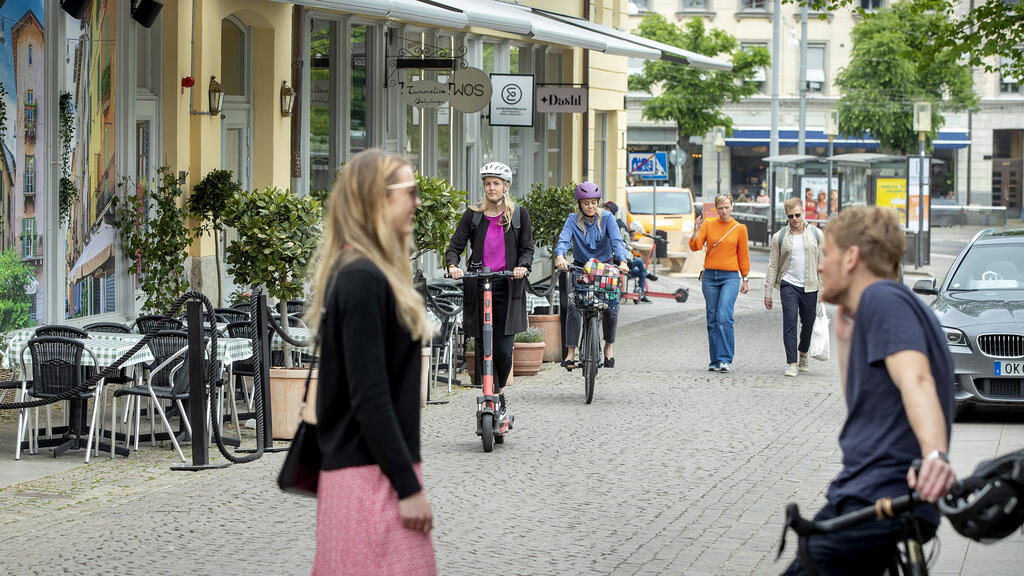e-COMSTRAT
The goal of e-COMSTRAT has been to provide new knowledge about how cities can achieve an improved urban environment through access to delivery data. By taking part of delivery data, e-COMSTRAT will provide cities with the right conditions to support the sustainable development of e-commerce deliveries.

During 2020, e-commerce turnover in Sweden increased by 40 percent. For the metropolitan regions, the corresponding growth was 65 percent and the forecast shows continued growth of around 10-15 percent per year. The project idea was inspired by a government assignment that Trafikanalys received in 2019. This showed that there is a lack of knowledge and insight regarding the consequences that a changed trade sector contributes to, primarily driven by the development of e-commerce. Above all, in spatial planning, a lack of insight is highlighted. To change this, e-COMSTRAT was founded.
What difference can e-COMSTRAT make?
By making delivery data available in the form of quantities transported, distributed over time and approximate location of recipients, the city gains improved insights into where there may be a need for changes in the physical environment.
Sharing data linked to deliveries also opens up for other possibilities. Therefore, the project has investigated the potential for how delivery data can be used for, for example, consolidation. Sharing delivery data is a prerequisite for understanding which goods are transported and how the transports are carried out. This understanding is the basis for understanding how goods can be consolidated and co-distributed and what capacity this requires both in terms of logistics properties, handling and transport capabilities.
Data-driven urban development and sharing of anonymized delivery data for retail distribution
In this part of the project, the actors have worked together to produce relevant delivery data from e-sold goods that are useful for the cities to gain insight into. The information has concerned the number of deliveries at postcode number level distributed by delivery location and period of the day for four selected areas. The work has been carried out by the city of Stockholm, the city of Gothenburg and nShift on Södermalm and in Bromma in Stockholm and in Masthugget-Olivedal and Askim in Gothenburg. The data that has been made available has been about:
- Distribution between different delivery types
- Number of deliveries broken down by day of the week and time of day
- Approach to key figures for the city: number of deliveries per household per week
Data sharing has, among other things, increased understanding of the impact of e-commerce on the cityscape and the future role of parcel lockers, strengthened the knowledge about the need of a more continuous data exchange, and contributed to the conditions required to be able to share data anonymously.
Take part in the final presentation of the project
Time period
August 2021 - February 2023
Contact
Klas Hjort, Lunds Tekniska Högskola
klas.hjort@plog.lth.se
Partners
Nshift, IKEA, Stockholms stad, Göteborgs Stad, Helsingborg, HM, Nowaste, Relog och CLOSER
Vinnova number
2021-03293


